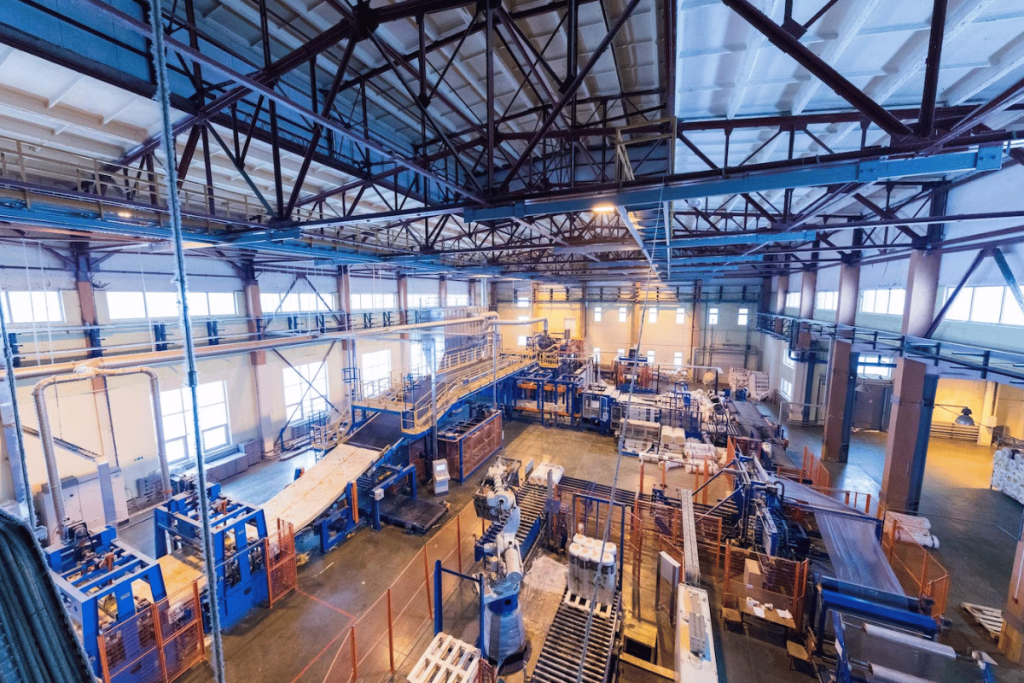You’ve built your business with tangible outcomes in mind. Manufacturing is as hands-on as it gets!
Now that you are thinking of selling, it can be difficult to quantify all the intangible assets that make up the heart and soul of your company–after all, your business is so much more than the product you produce.
You need a team of professionals, including lawyers, financial experts, and more, to help ensure you don’t sell yourself or your business short.
This blog takes you through the process of selling a manufacturing business and how Exitwise can help you expedite everything.
Selling your manufacturing business doesn’t have to be overwhelming. Consider the following steps:
Exitwise makes the process of selling your manufacturing business simple! Let’s examine each step in detail in this blog.

You can use a few different ways to determine the value of your manufacturing business, including:
The most common way to determine your company’s value is to use earnings-based valuations.
With this method, value is determined by looking at earnings over a certain time period and assuming similar future earnings growth.
A valuation multiple is a ratio that compares two factors, such as the business’ earnings compared to the implied value of the company, known as the SDE (Seller’s Discretionary Earnings) multiple. The average SDE multiple is between 2.68x and 3.54x.
Here’s an example of how it works:

Another valuation multiple compared to net income is the EBITDA multiple, which looks at Earnings Before Income, Taxes, Depreciation and Amortization. The average EBITDA multiple for a manufacturing business is between 3.54x and 4.19x.
Here’s an example of how it works:

Remember, these are simply average examples. Your unique business size, sector, and product all factor into your average multiple.
As a seller, you need to understand the key considerations that shape a buyer's decision.
Here are the main elements that can enhance the appeal of your manufacturing business and facilitate successful transactions:
Buyers prioritize businesses with strong financial records and consistent revenue growth. So your manufacturing business should have:
Buyers will look for businesses that stand out. Here are key things you should do:
Buyers are super attracted to manufacturing businesses that have streamlined their processes.
Here's what you can do to show your company is efficient and scalable for growth:
Buyers look for a business with a strong management team since it gives them confidence that the business will thrive after acquisition.
Here's how to showcase a capable and experienced team:
At Exitwise, we understand the intricacies of making your business attractive to buyers. We can help you find and hire the right experts to help you through each process.

Many documents are needed in the sale of your manufacturing business. It is best practice to hire a team of professionals to ensure you are preparing everything correctly.
Some common documents you need to sell your business include:
We can help you find and manage the best team of professionals to collect, prepare, and account for these documents.

A thoughtful approach to your employee transition during a sale protects your business value and sets the stage for a smoother transition.
The six steps below can help create a structured and supportive environment:
You should communicate with the buyer early to map out the key staff and department leads that are essential during and after the sale.
Additionally, they can decide on the transition roles of some of the employees to train new hires on the buyer's team. Have clear communication to understand if the buyer will retain all employees and/or bring in their team.
Your business should be compliant with employee rights during sales and acquisitions. So, review the employee contracts to understand any clauses on terminations and bonuses.
Review any union implications to prevent disputes and adhere to the labor laws. Remember to manage nondisclosure agreements to prevent your key employees from disclosing sensitive information to competitors.
Timing is crucial; if you reveal the sale of your business too early, you risk distraction, but waiting after closing the sale can erode trust.
Many business owners share the plans once the letter of intent is signed, so staff are in the loop without derailing negotiations. You should answer questions explaining the sale, what might change with their roles, and what will stay the same.
You should offer bonuses to key employees who stay during the transition. You should also provide them with transition contracts guaranteeing their employment for a set period.
The incentives should be aligned with performance milestones, such as training the buyer or completing system migrations.
You should maintain employee morale during the uncertainty. Foster open dialogues and transparent communication to allow your employees to voice their concerns and feel acknowledged. Prioritize mental health and train the employees on the change of management to help them adapt smoothly.
Besides, you should provide consistent encouragement for their achievements through rewards, recognition, and awards.
You should plan how to integrate the company cultures successfully after the acquisition. It can be through coordinated joint workshops, establishing cross-company training for both teams.
You should also create a time where teams from both sides work together to promote collaboration.

Now that we’ve covered some of the initial basics of selling your manufacturing company, let’s plan a path forward with the following steps:
The most important step, as we’ve gone over already, is correctly valuing your business to fully realize your success and get what you have worked years putting into it.
To get started, explore Exitwise’s free valuation calculator. While this gives you a good indication of the value range of your manufacturing business, you’ll need a team to help you narrow that value down.
We can help you find, hire, and manage the right professionals to move forward with your sale.
As noted, you’ll need to collect, collate, and prepare a bevy of financial records to sell your manufacturing company.
From tax returns to employment contracts, from the forms that made you a business to the licenses that keep you in business, you’ll need help ensuring that all financial records are prepped, ready, and included.
Exitwise can help you get the best prices for your manufacturing company by hiring and managing the right M&A experts for you.
You wouldn’t try to sell your house for top dollar without making sure it had the most curb appeal possible, right? It’s the same with selling your manufacturing company!
Enhance your manufacturing business’ curb appeal by carrying out the following:

Preparing a confidentiality agreement prior to the sale of your manufacturing company is an important step in securing your trade secrets and the sale itself.
It is important for confidentiality agreements to include terms that clearly detail the return of all information to you once the potential buyers have reviewed it.
Additionally, any interested parties must be legally bound to refrain from discussing your business and the forthcoming sale until the sales contract has been finalized.
This integral step in your merger and acquisition process cannot be completed without the aid of legal counsel.
Not only do you have to enhance your manufacturing company’s appeal, you also need to market that appeal to potential buyers.
While you may have a solid marketing plan in place for your product, this step is about marketing your entire business (both the tangible and intangible parts).
Once you’ve marketed your manufacturing business successfully and buyers have come forward with interest, you’ll need to screen them to determine if they are the right fit to acquire your business.
A few questions can help you decide which potential buyer is the right one:
Finding the best buyer for your manufacturing business takes forethought, skill, and time. Don’t rush this step!

As you may imagine, the terms of selling your manufacturing business can be quite complex. You’ll want to consider tax implications, earning protections and warranties, indemnification, and more.
Arriving at negotiations fully prepared and with a team of experts to back you up is the best way to find success.
The due diligence process is one in which you, the seller of a manufacturing business, provide potential buyers with all the data, documents, and decision-making material they need to feel comfortable making the purchase.
Once again, preparation is the name of the game for this step of selling your manufacturing company. Ensuring a smooth purchase process starts with preparing the best due diligence package possible.
The ninth step in selling your manufacturing business is one that you cannot do without the hired help of a specialized legal team.
Finalizing your sale documents includes technical skills that only seasoned mergers and acquisitions law firms possess. Don’t try to go it alone–you need the help of a team of professionals!
Before you take payment for the sale of your manufacturing business (generally referred to as “closing”), but after everything else is complete, you’ll need to prepare and follow a detailed transition plan in collaboration with the buyer.
Your manufacturing company has many moving parts. Remember all those tangible and intangible pieces we’ve been talking about?
While the actual sale can be finalized with signatures on all the right documents, the transition from you as owner of the manufacturing business to the right new owners will take careful planning.

While the 10 steps we've discussed can help you sell your business, you should also take a strategic approach in your negotiations to maximize the sales price of your manufacturing business.
Check out the crucial actions to take:

The way your manufacturing business is structured can impact your taxes and the net profits from the sale.
Here are some tax implications to consider:
In this case, each asset is taxed separately, which might trigger higher taxes. However, buyers can reset the depreciation time on the assets and get tax advantages in the future.
Comparing the stock sale vs. asset sale, the stock sales are more straightforward and more tax-efficient, with the gains taxed at the capital gains rate. However, for buyers, their depreciation benefits become limited.
If you have owned your business for more than a year, the benefits include lower long-term tax rates. If it was less than a year, you'll be taxed as ordinary income.
Given the complexities surrounding these types of taxes, you should consult professionals.
Engage with a lawyer to advise you on all legal aspects of the transactions. Also, you should work with a tax advisor who has experience in M&A and exit planning to help you understand the tax implications of your sale and develop strategies to minimize the tax liabilities.
Start a conversation with us, and let's help you find the right advisors for your manufacturing business sale.
On average, selling your manufacturing business should take between six and twelve months. Considering all the steps above and the time and effort needed for each one, that’s not a long time at all.
Remember, Exitwise stays with you throughout the process.
We’ve helped so many companies through this entire process, including the successful sale of the manufacturing company Great Lakes Tile Products!

Ten of the most common challenges to selling your manufacturing business include:
Exitwise can take care of number ten–which helps you tackle all the other challenges listed and any others you might face in the process of selling your manufacturing business.

Let's answer some commonly asked questions about selling your manufacturing business below:
You can sell your manufacturing business without a broker by following these steps:
There isn’t a particular time in the year that’s more suitable for selling your business. However, the best time to sell your manufacturing business is when:
Absolutely!
The common ways to sell your business with debt are:
Here's what happens when a business is sold:
Of all the things your hands have held and worked to build, the things you can’t hold sometimes add up to more than you ever thought possible.
Your manufacturing company is worth more than what you can see and touch. It would be an impossible task for you alone to determine the value of this business you’ve built from the ground up.
Selling your manufacturing business is not a process you should take on by yourself.
Exitwise is ready to prepare the way for you to get the most out of everything that makes up the real value of your manufacturing business.
Let Exitwise introduce, hire and manage the best, industry specialized, investment bankers, M&A attorneys, tax accountants and other M&A advisors to help you maximize the sale of your business.

